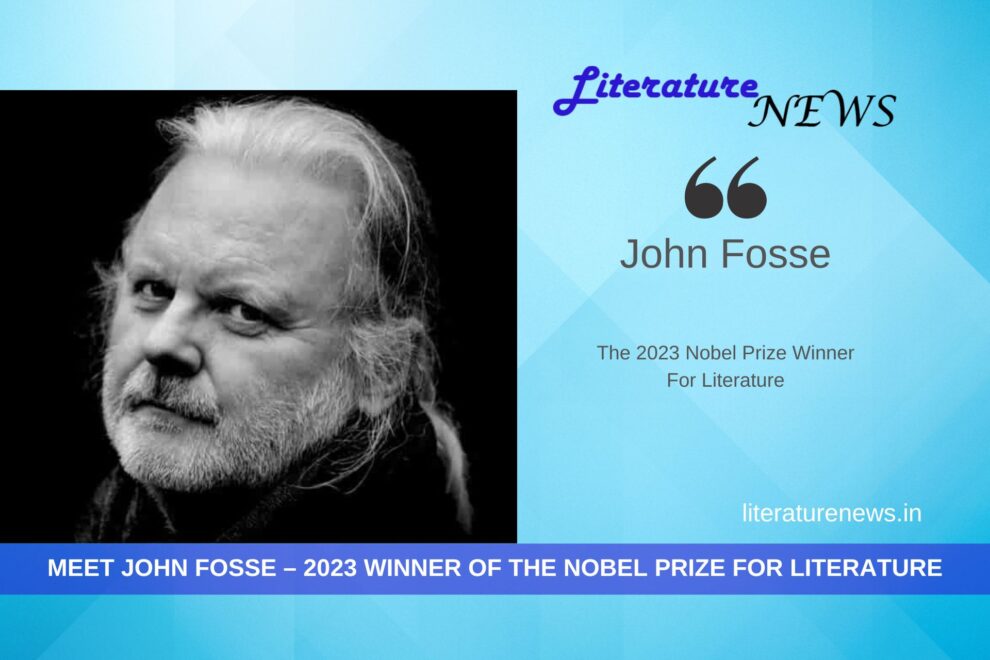Renowned Norwegian author Jon Fosse has secured the coveted 2023 Nobel Prize in Literature, a momentous recognition of his profound impact on contemporary European literature. The Swedish Academy, responsible for selecting laureates in literature, unveiled Fosse’s triumph on October 5, praising his innovation in both plays and prose, giving voice to the ineffable aspects of human experience. This prize not only brings worldwide recognition and fame, adding to what massive one he already has, but it also has many other ramifications. In this article, we will try to find out more about John Fosses, the winner, and also ponder the unfolding of events.
A Literary Maestro Emerges:
Born in 1959 in the Norwegian coastal town of Haugesund, Jon Fosse has ascended to become one of the most crucial figures in contemporary European literature. Drawing comparisons to Samuel Beckett, he has earned acclaim as “the Beckett of the 21st century” from the French daily Le Monde and has been hailed as “one of the most provocative pens in contemporary theatre” by Canada’s The Globe and Mail.
Versatility Across Genres:
Fosse’s literary prowess extends across genres, encompassing novels, stories, poetry, essays, and even children’s books. His literary journey commenced with the publication of his first novel, “Red, Black,” in 1983. Since then, he has continued to weave a rich tapestry of narratives, demonstrating versatility and a profound understanding of the human condition.
Prolific Playwright:
While Fosse’s contributions to literature are multifaceted, he gained international acclaim primarily as a playwright. His first play, “And We’ll Never Be Parted,” published in 1994, marked the beginning of a prolific phase in his theatrical career. The play explores the complexities of human relationships, a theme that resonates throughout much of Fosse’s work.
Global Theatrical Impact:
Fosse’s plays, characterized by their depth and innovative narrative structures, have been staged over a thousand times worldwide in 50 languages. His international breakthrough came in 1999 with the staging of “Someone Is Going to Come” by French theatre director Claude Regy. This play delves into the psychological intricacies of a couple secluded in a run-down house, adding a layer of paranoia as they fear the impending arrival of an unknown visitor.
Influence and Recognition:
Acknowledged by fellow Norwegian author Karl Ove Knausgaard, who was once his student, Fosse’s impact transcends his written words. Knausgaard details the profound influence of Fosse’s work in his acclaimed series “My Struggle.” In 2003, Fosse received the prestigious Chevalier of the Ordre national du Merite of France.
Magnum Opus – The “Septology”:
Fosse’s magnum opus, the “Septology,” published from 2019 to 2021, stands as a monumental achievement in contemporary literature. Comprising three volumes — “The Other Name,” “I Is Another,” and “A New Name” — the work unfolds through a single-sentence monologue by an elderly artist reflecting on art and God. Spanning 1,250 pages, the prose work offers a profound exploration of existential themes, earning critical acclaim and nominations for prestigious literary awards.
A Personal and Artistic Evolution:
While Fosse describes the ageing artist’s reckoning with religion in the “Septology” as non-autobiographical, his personal journey reflects a significant transformation. Until 2012, Fosse identified as an atheist, but a decade ago, he experienced a religious awakening, culminating in his embrace of Catholicism. This period also marked his commitment to overcoming long-term alcoholism through treatment.
International Accolades and Translations:
Fosse’s literary contributions have not been confined to his native Norway. His works, translated into numerous languages, have garnered international recognition. Beyond his own writing, Fosse has contributed to the literary landscape through translations, including Franz Kafka’s “The Trial,” a novel he holds in high regard.
Nobel Prize and Literary Legacy:
The Nobel Prize in Literature, worth 11 million Swedish crowns, underscores Jon Fosse’s enduring impact on the literary world. His recognition by the Swedish Academy adds another layer to his already impressive legacy, solidifying his status as a luminary in contemporary European literature.
Final Words:
Jon Fosse’s literary journey, marked by innovation, versatility, and a profound understanding of the human experience, has culminated in the prestigious Nobel Prize in Literature. His influence extends across genres and borders, making him a truly global literary figure. Fosse’s exploration of existential themes, coupled with his personal and artistic evolution, adds depth to his contributions. As he joins the ranks of Nobel laureates, Fosse’s legacy continues to shape the landscape of contemporary literature, leaving an indelible mark for generations to come.
by Chirayu for Literature News






Add Comment